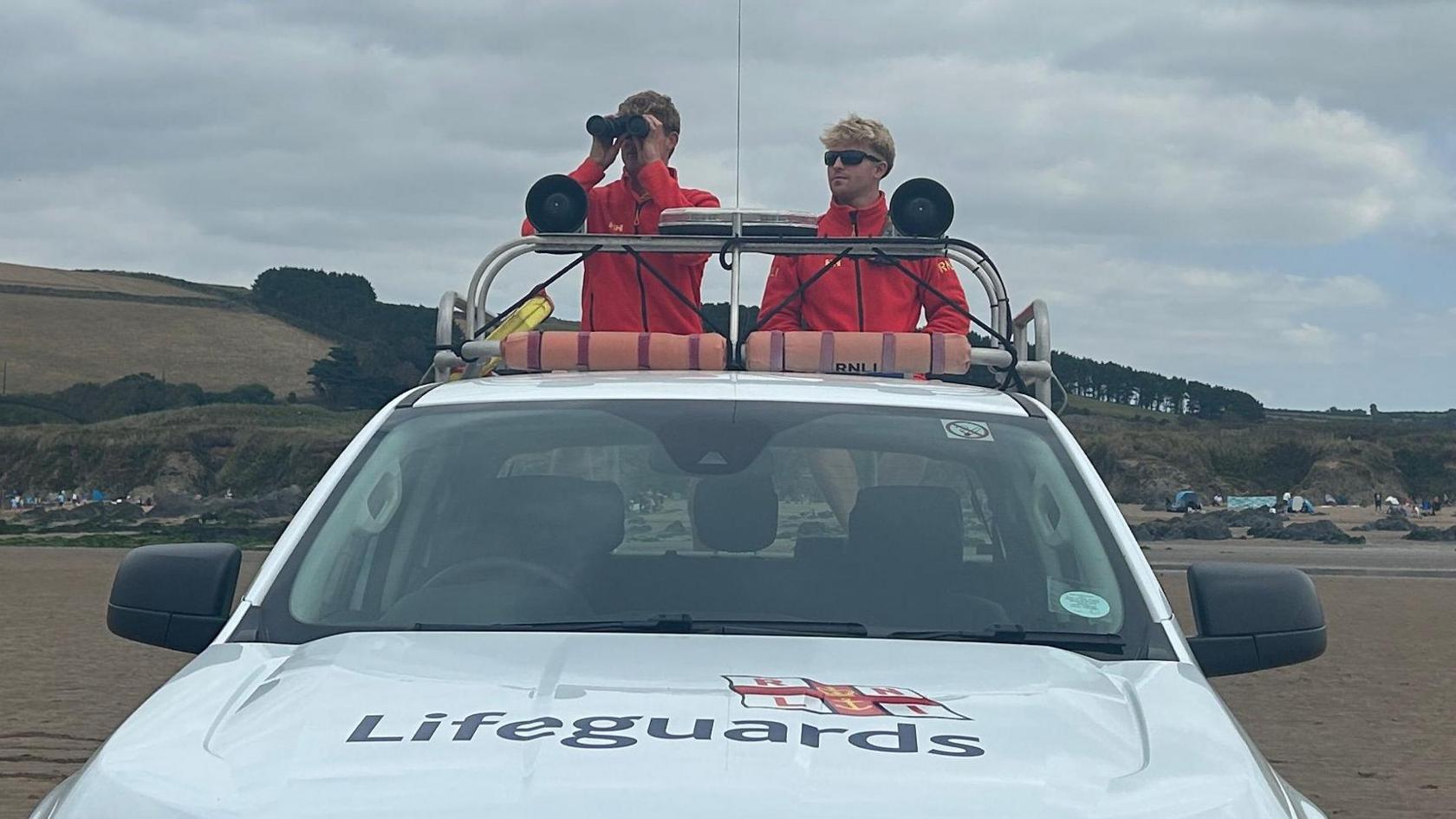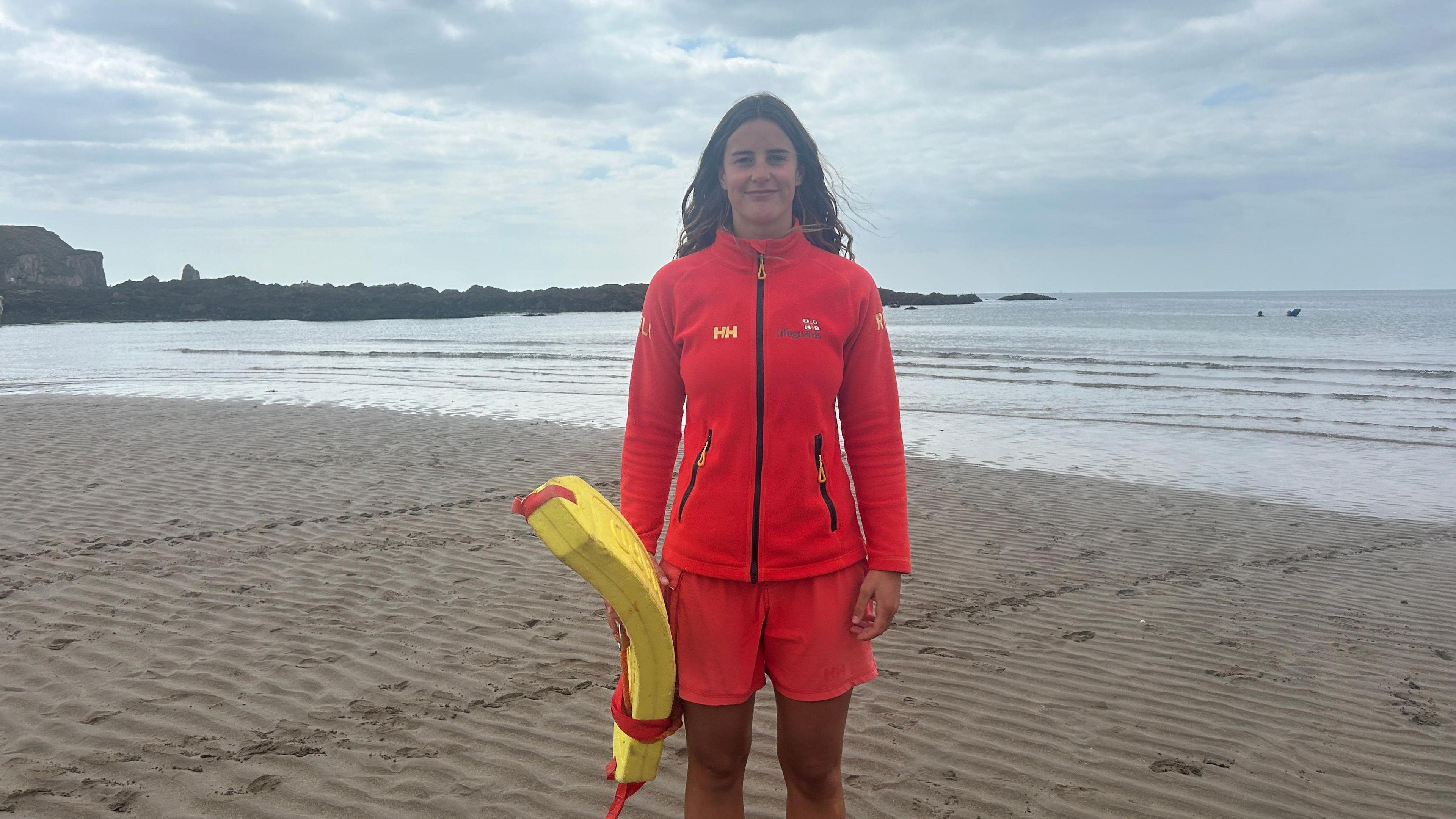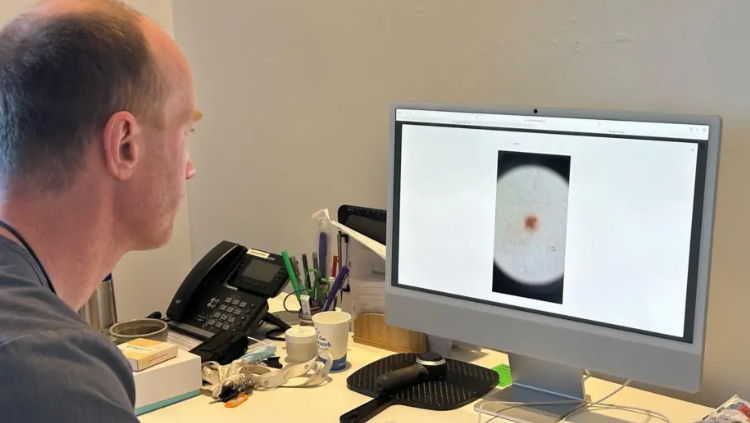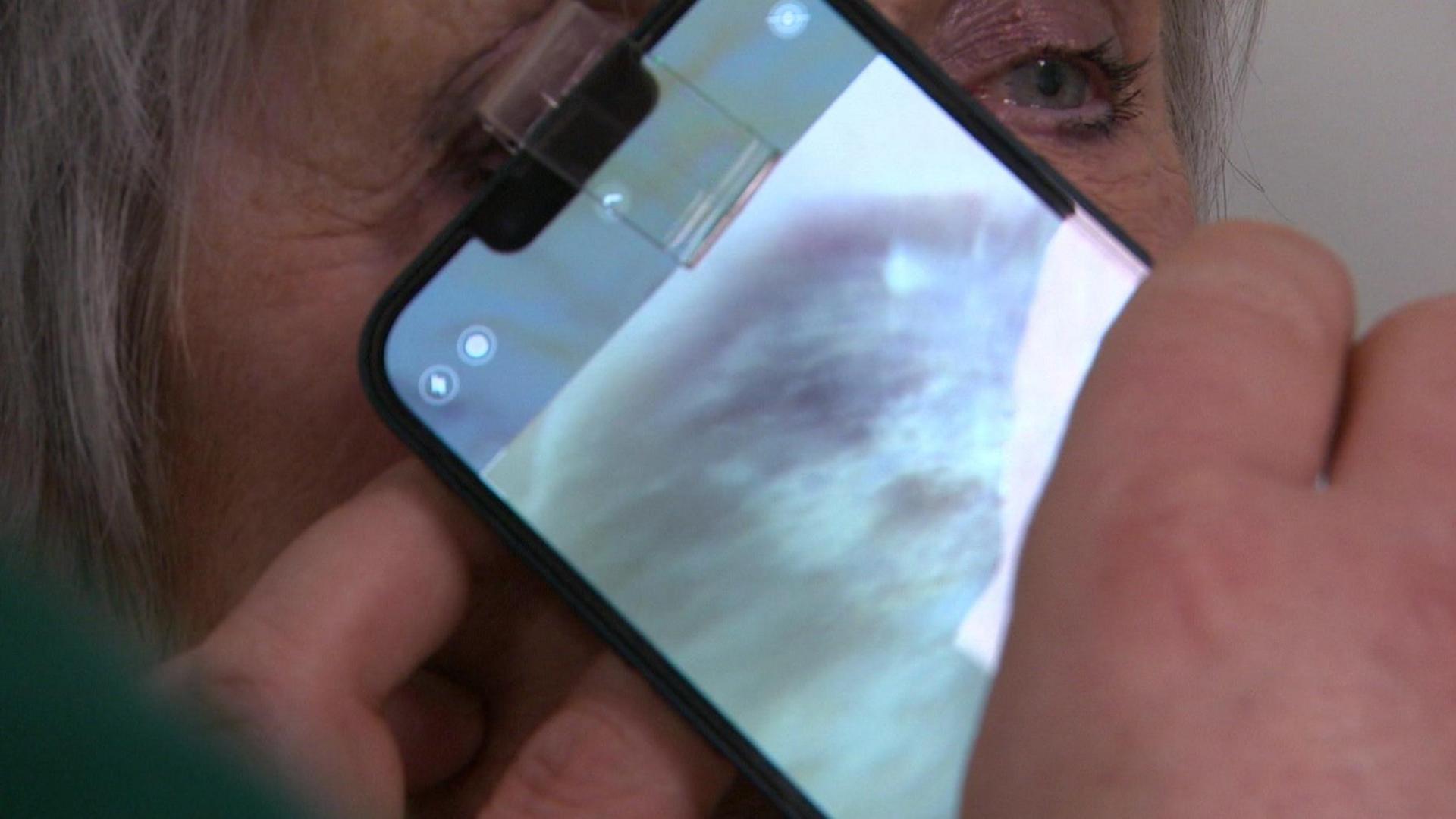RNLI lifeguards to get free skin cancer checks

Harry Durant, 22, is a senior lifeguard and has already gone to the GP over concerns about his skin
- Published
Lifeguards at 238 beaches across the UK are being given free skin cancer checks.
Those working for the Royal National Lifeboat Institution (RNLI) will be given kits by Map My Mole, which include a lens to use on mobile phone cameras.
Lifeguards are to use the lens to photograph any moles or lesions of concern, before uploading photos to an app. UK consultants can review the pictures in as little as 24 hours.
Dr Toby Nelson, consultant dermatologist and co-founder of Map My Mole, said: "The lifeguards already get protective clothing and access to sun cream, but they don't necessarily have access to that all important mole check."

Beach teams across the UK are being given access to an app to check skin concerns
Harry Durant, 22 of Thurlestone, Devon, has been a senior lifeguard in South Devon for six seasons.
He said he had previously had to go to his GP to get moles checked.
"If I can do it at home, it saves that process and time but it also gives me a chance to monitor my own skin," he said.
Student Daisy Womack, 21, of Loddiswell in Devon, has been a senior lifeguard for five seasons.
"We get a lot of sun exposure from being outside all the time, so it's definitely something we think about day to day," she said.

Daisy Womack is one of many RNLI lifeguards who spend a long time outdoors
Alongside the initiative, the RNLI said it would be running a beachside awareness campaign that will aim to educate thousands about the importance of early cancer detection and sun safety.
Peter Dawes, from the RNLI, said: "We're not only helping to protect the health of our lifeguards but also giving the public the tools to act early when it comes to skin concerns."
The number of skin cancer cases in the UK has reached an all-time high, according to Cancer Research UK.
The charity said rates were rising for adults between the ages of 25 and 49, with a 7% increase in cases in the last 10 years.
According to Public Health England, the proportion of new cases of skin cancer diagnosed for the populations of Devon, Cornwall and Somerset is double the England average.
Of the patients in the three counties diagnosed with melanoma, the most serious form of the disease, one in four do not survive beyond five years.

Dr Toby Nelson from Map My Mole says beachgoers get more sun exposure
Map My Mole's Dr Toby Nelson said: "The South West has the highest rates of skin cancer in the UK.
"The reason for that is people spend a lot of time outdoors and we have some of the best beaches in the world."
He added that lifeguards were outdoors for long periods of time from a young age, contributing to more sun exposure.
- Published27 March

- Published27 May 2024
